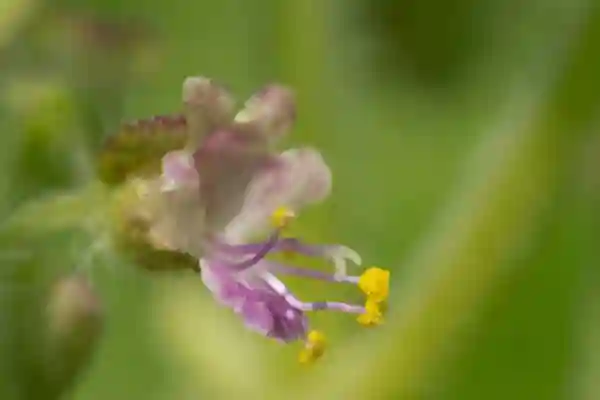

What are adaptogens?
None of us are immune to the pressures of modern life, whether it be work deadlines, the daily commute or just simply never having enough hours in the day.
The Health & Safety Executive estimate that in 2021/22 stress accounted for 51% of all work related ill health cases and 55% of all working days lost due to ill health.
Our bodies are also regularly exposed to physical and toxic stress – from household chemicals, pesticides in our foods, pollutants in the air, intensively farmed meats and refined sugar to name but a few.
All this can overwhelm the body’s ability to cope leading to insomnia, tiredness, anxiety, depression and even physical illness.
Thankfully there are some incredible rejuvenating herbs that can help. These are the amazing adaptogens.
So what are adaptogenic herbs?
Well, the clue is their name. Herbal adaptogens literally help the body to adapt, adjust and recalibrate itself depending on our emotional and physical surroundings. So, for example, they can help calm in times of stress. They can bring peace to a racing mind in the middle of the night. They can give clarity when everything around is in turmoil. They can give energy when we are tired.
The term adaptogen was introduced into scientific literature by Russian toxicologist Nikolay Lazarev in 1957 to refer to ‘substances that increase the state of non-specific resistance' in stress. Broadly, an adaptogen must have the four ‘Ns'
Nourishing - bring nutritive strength
Normalising - raise what is low and lower what is high (eg energy, stress)
Non-specific - act on multiple parts of the body at the same time
Non-toxic - be completely safe when used over extended periods of time.
So, how do adaptogenic herbs work?
Adaptogens relieve stress by modulating the release of stress hormones from the adrenal glands. As biological response modifiers (BRMs) adaptogens restore the body’s innate immune function and help the body adapt to different stressors. This gives them preventative and protective as well as curative activity in compromised immunity.
By replenishing our deeper immunity and regulating our response to stress, adaptogens replenish the wellspring of health and vitality and are true rejuvenative tonics helping to:
Improve overall wellbeing
Increase energy
Optimise organ function
Reduce stress response
Increase inner strength
Improve blood sugar levels
Optimise protein synthesis
Reduce inflammatory cortisol levels
Improve cholesterol ratios
Regulate the hormonal balance
We often marvel at the fact that there are plants that can do all, yes, ALL of these things - and there are plenty. Here is a list of our favourite adaptogenic herbs:
1. Ashwagandha
What is Ashwagandha? It's the perfect herb for the 21st century as it both calms and energises, helping us to adapt to the stresses of everyday living. It’s helpful for assisting deep sleep and calming nervous tension. Its ability to replenish the blood, enhance nutrients and build bone strength make it indispensable in disorders of degeneration and ageing. Its affinity for the adrenal, endocrine and nervous systems point to its use in any imbalances affecting our energy or vitality.
2. Tulsi - Holy Basil
This leafy member of the mint family is known in Hindu mythology as an incarnation of the Goddess Tulsi, offering divine protection. As well as increasing circulation, aiding digestion and helping to protect against seasonal malaise, holy basil is also good for calming busy minds. Try our Tulsi Clarity tea and discover the restorative power of adaptogenic herbs.
3. Turmeric
Though turmeric doesn’t meet the full requirements to be classed as an adaptogen, it can be thought of as a secondary and supporting adaptogen due to its as its wide-ranging positive effects.
The super-spice par excellence. High in flavonoids and with over 6,000 clinical studies attesting to its ability to protect and nourish the body, it prevents ageing, improves circulation, reduces inflammation, heals wounds and protects the liver and bowels. It has gained the reputation of one of nature’s most potent remedies for many of today’s health challenges.
Finally, perhaps our greatest rejuvenating friend is letting our hair down and peeling with laughter. There is a great Hindi adage that goes:
“ There is medicine for 100 problems, but laughter is my best healing friend!”

Author: Dr Vivien Rolfe
Head of Herbal Research
Viv is a gut physiologist and has recently achieved a Foundation in Herbal Medicine. She leads Pukka’s research programme to explore how herbs can benefit our health and be used to widen healthcare choices. This includes research into herbs for Women’s health and as alternatives to antibiotics. She establishes global research partnerships and enthuses the next generation of scientists through Pukka’s Scholarship Scheme. She is a champion of diversity in science and open access to knowledge.
Qualifications:
BSc, PhD, PFHEA
Years of experience:
30+ years in the wellbeing industry and academia
Education:
Degree in Physiology University of Sheffield, PhD University of Sheffield, Foundation in Herbalism Heartwood, MBA Entrepreneurship (on-going) Edinburgh Napier University, Principal Fellow of the Higher Education Academy.
Professional Registrations:
Membership of Nutrition Society, Physiological Society, Society for Chemical Industry, and other herbal and botanical groups.
